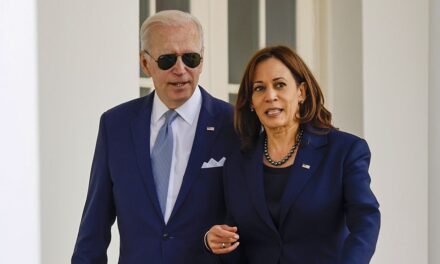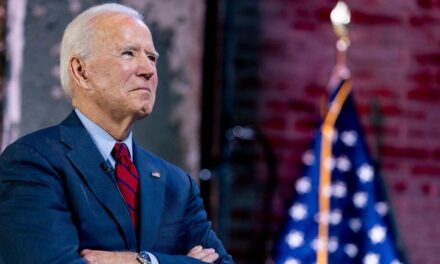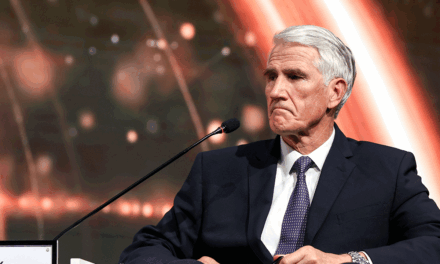In a recently published book, insights from a top aide to President Joe Biden have unveiled a gripping revelation: those closest to the President were in a state of “stunning” denial concerning his mental and physical decline. This assertion has ignited conversations across the political landscape about transparency, leadership, and the health of one of the most significant figures in contemporary American politics.
The book, which has garnered attention for its candid portrayal of Biden’s inner workings, paints a portrait of a team deeply invested in preserving the public image of their leader, even as they grappled with undeniable signs of deterioration. The aide, whose identity remains confidential, noted that this denial was not just a personal observation but a widespread sentiment among senior officials within Biden’s administration.
According to the aide, many in Biden’s circle held onto an idealized image of their leader that did not align with reality. This dissonance, they argue, influenced various decisions and communications, often prioritizing the need to maintain a facade over confronting pressing issues related to Biden’s cognitive and physical capabilities.
As the discussion surrounding Biden’s age and fitness for office continues to escalate, this insider perspective has opened up critical dialogues regarding the role of advisors in ensuring that leaders are adequately supported while also raising questions about accountability and ethical responsibilities.
The author of the book, whose motivations stem from a commitment to documenting the current political climate, emphasizes how such denial is detrimental not just to Biden but to the broader system of governance. They argue that in a political landscape where transparency is increasingly demanded by the public, the reluctance of advisors to confront uncomfortable truths only exacerbates distrust in government.
As America approaches the next election cycle, the implications of this revelation extend beyond the personal to the institutional. Analysts and political commentators are now questioning how such dynamics within the highest echelons of power could affect not only Biden’s re-election bid but also the overall integrity of democratic processes.
Critics have been quick to seize upon the idea that a leadership team could be so enamored by the prospect of legacy and image that they would overlook crucial health concerns. This notion is compounded by the reality of an aging leadership in the United States, as both Biden and former President Donald Trump are at an age where physical and cognitive decline can be more pronounced.
Such discussions have raised alarms among voters, particularly as both major parties continue to grapple with the essential question of what constitutes fitness for office. Many citizens wonder whether age should be a disqualifying factor or whether it could be viewed as a reflection of experience and wisdom. Nevertheless, the consensus appears to be crystallizing around the idea that leaders owe their constituents a certain level of transparency regarding their physical and mental fitness for the job.
The author went on to highlight that this internal denial within Biden’s circle has far-reaching consequences. For one, it could lead to policy decisions that are uninformed by the realities of Biden’s health. The aide implied that such a scenario played out in real-time, where important decisions were made that relied on the assumption that Biden was capable of handling the grueling demands of the presidency.
This situation is particularly concerning given the current geopolitical landscape, which is fraught with challenges such as international conflicts, economic instability, and climate change that demand sharp, informed leadership. As the complexities of governance grow, so does the importance of having a leader at the helm who is not only present but fully engaged in the responsibilities of the role.
The narrative of denial also shines a light on the subculture of political advisors who often find themselves torn between loyalty to their leaders and their ethical obligation to provide unvarnished assessments. In a bid to protect their political patron, many advisors may end up sacrificing their moral compass, contributing to a cycle of mismanagement and disengagement.
Moreover, one can’t ignore the implications for the Democratic Party, particularly as they face upcoming elections. Should the party grapple with public sentiment regarding Biden’s viability as a candidate, it risks not only his potential re-election but also a fracturing of party unity. Democrats must balance the legacy of Biden’s presidency with the expectations of a new generation of voters who are increasingly skeptical of long-standing leadership.
In response to mounting public scrutiny, some Biden administration officials have made attempts to reassure both Congress and the American people about Biden’s capabilities. Yet, the weight of the allegations detailing the inner workings of denial casts a shadow on those assertions. The difficulty lies not only in repairing public trust but also in realigning the narratives surrounding the nation’s leadership.
Political opposition has also seized upon these revelations as ammunition. Republican strategists are likely to utilize this insider knowledge to question Biden’s competency, framing it as a broader issue of leadership failing to keep pace with the demands of the role. The partisan landscape indicates that such discussions will be amplified in the lead-up to elections, forcing Democrats to address not only Biden’s abilities but also the perceptions of a leadership team mired in complacency.
This narrative plays into the larger American discourse regarding mental health and the expectations of leadership. In a world increasingly focused on well-being, the pressures surrounding political figures to perform under scrutiny can lead to adverse outcomes. The need for a robust support system that includes a candid evaluation of one’s health is paramount for anyone in a high-stakes position.
In conclusion, while the revelations from the aide serve as a wake-up call for Biden’s administration and supporters alike, they also pose a critical question to the American public: how should we balance respect for leaders’ experiences with the necessity for transparency? As the dialogue progresses in the realms of politics and public health, the key takeaway may well be that denial has no place in any leadership, particularly not in the halls of the White House where the implications of such denial reach far beyond individual advisors and into the fabric of governance itself.
In an era where citizens demand increasing accountability and transparency from those they elect, the story of Biden’s inner circle offers a powerful lesson about the risks posed by denial, the complexity of leadership, and the responsibilities that come with power. As the country navigates these challenging waters, one can only hope the result is a more attentive and responsive political landscape.































